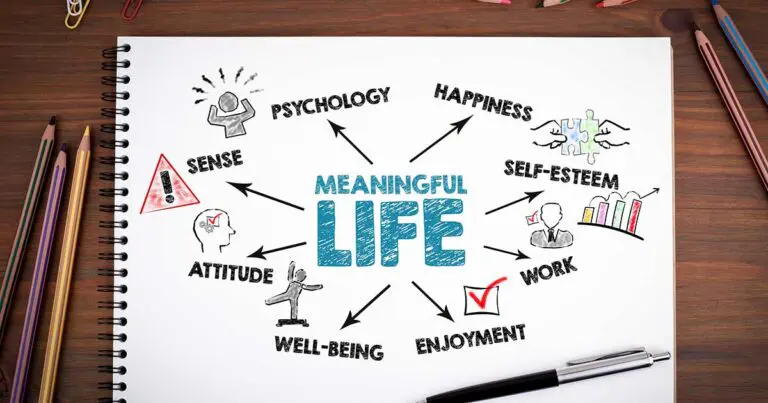How to Answer “How Do You Define Success?” with Interview Sample Answers

Imagine walking into an interview, confident and prepared, and then you’re asked, “How do you define success?”
This question, while seemingly straightforward, probes deeper into your personal and professional values.
So, if you’re a job seeker looking for ways to answer this question with confidence, keep reading for tips on crafting a compelling response that resonates with your interviewers, reflecting your unique vision of success.
Why do employers ask, “How do you define success?” in job interviews?
Employers often ask this open-ended question to peel back the layers of your motivational canvas—what drives you, how you measure achievements, and whether your vision aligns with the company’s culture and objectives.
They are not just interested in your past accomplishments but also in your aspirations and the driving force behind them.
Understanding your definition of success helps employers gauge how well you would fit into the team and contribute to the organization’s goals.
How to answer, “How do you define success?” in a job interview
1. Self-reflection to define your version of success
To genuinely answer how you define success, begin with introspection. Reflect on both personal and professional aspects of success.
What values do you hold dear? Is it career progression, team goals, or personal development?
For instance, you might value continuous learning and growth, seeing success as a journey rather than a destination.
2. Craft your answer to “How do you define success?” in a job interview
Craft an answer that truly represents who you are.
Start by briefly defining what success means to you. Then, elaborate with specific examples from your previous roles or personal experiences that highlight these beliefs.
Conclude by tying how your personal definition of success aligns with the goals of the company, emphasizing a strong culture fit.
3. Incorporate real-life examples to answer “How do you define success?”
Incorporating real-life examples into your answer makes it more relatable and convincing.
Share stories that highlight your proudest accomplishments and how they align with your vision of success.
For instance, if personal success for you means achieving sales goals, describe a time when you led a sales team to exceed targets through innovative strategies.
4. Practice and prepare to answer “How do you define success?”
Practice makes perfect, and it’s essential to master your response to this question.
Engage in mock interviews with mentors or peers to refine both your delivery and content.
Focus on your body language and tone of voice, ensuring they convey sincerity and enthusiasm, which can greatly enhance the impact of your words.
Additionally, treat feedback as invaluable, using it to hone your answer into a compelling and polished narrative that sets you apart from other candidates.
Common pitfalls to avoid when answering, “How do you define success?”
Common pitfalls to avoid when answering, “How do you define success?” include: generic answers, focusing too much on compensation, and being unrealistic.
Avoid generic or broad answers to “How do you define success?”
Avoid generic or broad answers because they don’t provide a true reflection of your values and can seem insincere.
Common job interview questions like this one require detailed answers that demonstrate your understanding of company goals and how you fit into them.
Behavioral interview questions are designed to delve deeper, so avoid giving generic answers that don’t offer specific insights.
Don’t focus too much on compensation answering “How do you define success?”
Focusing too much on compensation can give the wrong impression that you are only motivated by money.
Potential employers are looking for candidates who align with their mission and values, not just those who are chasing a paycheck.
Emphasize your long-term goals and how you aim to achieve true success beyond financial gain.
Avoid being unrealistic when answering “How do you define success?”
Setting unrealistic goals can signal a lack of understanding about your industry or role.
Employers might view this as a red flag, questioning your practicality and suitability for the position.
To avoid this, ensure your definition of success is both ambitious and attainable, rooted in real-world expectations.
“How do you define success?” sample answers:
Sample answer 1:
“To me, success is about continuous improvement and achieving personal goals. In my last role, I set a goal to increase our sales revenue by 20% within a year. Through dedicated teamwork and strategic planning, we surpassed that goal, which was incredibly fulfilling.”
Sample answer 2:
“Success means making a positive impact through my work. When I led a project at my previous company, we not only met our team goals but also improved our processes, leading to a more efficient workflow and happier clients.”
Sample answer 3
“I define success by the personal development and growth I experience. For example, in my current job, I’ve taken on additional responsibilities that have expanded my skill set and prepared me for future career goals.”
Interview answer template for “How do you define success?”
- Introduction: Briefly state your definition of success.
- Body: Support your definition with personal anecdotes or achievements.
- Conclusion: Tie your definition back to what you can bring to the company and how it aligns with the role.
Success, to me, means __________ (e.g., achieving a balance between personal fulfillment and professional accomplishments).
My definition of success is shaped by __________ (e.g., a personal value, experience, or belief that influences your definition). For example, when I __________ (e.g., led a project that improved team efficiency), I felt successful because __________ (e.g., it allowed me to see the tangible impact of my efforts and the positive change it brought to the team).
In this role, I believe my definition of success aligns well with __________ (e.g., the company’s commitment to innovation and teamwork). I am confident that by __________ (e.g., bringing a collaborative spirit and a focus on continuous improvement), I can help __________ (e.g., drive the company’s marketing efforts to new heights) and achieve mutual success.
Video: Example answer for, “How do you define success?”
Check out this video from self-branding expert, René Delescen for examples on how to answer, “How do you define success?”
In this video, René breaks down his answers into two categories:
- Answers for those with professional experience
- Answers for those with no professional experience
Answering “How do you define success?” in an interview
In conclusion, defining success in an interview is about more than impressing the panel; it’s about being authentic and aligned with your core values.
This not only helps you stand out as a candidate but also ensures that you are a good fit for the company and will be satisfied with your role.
Think about your definition of success and how it aligns with your career aspirations.
Looking for your next gig? Let us help.
Every year, Mondo helps over 2,000 candidates find jobs they love.
More Reading…
- What Are Smart Contracts and Why Are They Good for Your Business?
- The Intersection of Gaming and Education: Opportunities for Tech Careers
- Top 5 Ways to Build Brand Loyalty Through Social Media
- 5 Game-Changing Ways AR and VR are Transforming Retail
- How Artificial Intelligence is Transforming Supply Chain Management
- Top 6 Roles to Integrate Voice Search Optimization into Digital Marketing
- Cloud Data Security: Best Practices & Roles to Hire
- What is API Integration & Why Does Your Business Need It?
- AI Overwhelm & 3 Things You Can Do Now to Get Started
- AI You Didn’t Realize Your Organization Is Already Using
- Highest Paid Data Science Roles & Top Salaries



